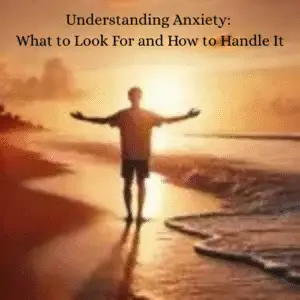Identify Eating Disorders
Eating disorders are often brushed under the rug or misunderstood. They affect millions of people, impacting their bodies and minds in ways many of us might not even notice at first. Whether it’s skipping meals, obsessing over calories, or extreme exercise, the warning signs aren’t always obvious, especially when it’s happening to someone close to you—or even yourself. But catching the signs early can make a huge difference. Let’s talk about what to look for, why it matters, and how to get help if you or someone you know might be struggling.
What Exactly Is an Eating Disorder?
Eating disorders aren’t really about food itself. They’re more about deeper emotional struggles that find their way into eating habits. It’s often a way to cope with tough emotions like stress, anxiety, or even a need to feel in control. I know it can sound a bit abstract, but think of it like using food as a way to manage emotions when words won’t do.
Here are the most common types of eating disorders:
- Anorexia Nervosa: This is when a person severely restricts food intake, usually because they’re terrified of gaining weight, even if they’re already underweight. They may see themselves as “too big” even when they’re not.
- Bulimia Nervosa: This involves a cycle of binge eating followed by behaviors like vomiting, using laxatives, or excessive exercise to avoid weight gain. It’s like feeling out of control when eating, then desperately trying to “fix” it.
- Binge Eating Disorder: Unlike bulimia, binge eating isn’t followed by purging. Instead, a person might feel deep guilt and shame after eating a lot, but they don’t try to counteract it physically.
These disorders are complex, and they don’t just hurt the mind. They take a real toll on the body too.
Common Signs You Shouldn’t Ignore
Sometimes, recognizing an eating disorder is tricky, even when it’s happening right in front of you. But if you know what to watch out for, the signs become clearer.
- Strange Eating Habits: If someone’s skipping meals, only eating tiny portions, or avoiding food groups, that’s a red flag. Another big one? They might eat in secret or suddenly become very concerned with what’s “healthy.”
- Mood Swings: Eating disorders don’t just affect the body—they mess with the mind too. If someone becomes more anxious, irritable, or withdraws from social events, especially ones involving food, it could be a sign.
- Obsessing Over Body or Exercise: Constantly talking about dieting, calories, or spending hours at the gym can be another clue. While staying healthy is one thing, when it becomes an obsession, that’s different.
- Physical Symptoms: You might notice sudden weight changes, fatigue, dizziness, or even fainting spells. People with eating disorders sometimes have brittle hair or nails, or their skin might seem pale or dry.
Here’s the thing, though: eating disorders don’t always show up in how someone looks. Just because someone isn’t extremely underweight doesn’t mean they’re not struggling. That’s why it’s so important to also pay attention to their behavior and emotional state.
The Impact on Your Mind and Body
Eating disorders don’t just live in your head. They spread out into your whole life. Mentally, they can lead to depression, anxiety, and low self-esteem, locking a person in a painful cycle that’s hard to break. Physically, the toll is brutal. From heart issues to bone loss to digestive problems—these disorders affect every part of the body. They can even be life-threatening if left untreated.
But it’s not just the person suffering who’s affected. Families and friends often feel helpless, watching someone they love struggle with something so deep and personal. I’ve been there with a friend of mine—wondering what to say, how to help, and feeling terrified of saying the wrong thing.
Reaching Out for Help
If you’re seeing some of these signs, either in yourself or someone close to you, don’t wait. These disorders are treatable, and the earlier you reach out, the better the chances for recovery.
- Therapy: Talking to someone is a big step. Cognitive-behavioral therapy (CBT) is often used to treat eating disorders because it helps a person challenge harmful thoughts around food and body image. It’s about re-learning how to think in a healthier way.
- Medical Care: Eating disorders can mess with your body in dangerous ways, so getting medical help is crucial. A doctor can keep an eye on your overall health while you’re working through recovery.
- Nutritional Counseling: A dietitian can help create a balanced meal plan that supports both physical and emotional healing. It’s not just about food—it’s about feeling better from the inside out.
If you’re not sure where to start, the National Eating Disorders Association (NEDA) has a helpline. They’ve got resources and support to guide you toward getting help, whether for yourself or someone else.
Taking the First Step
Honestly, the hardest part can be taking that first step—admitting something’s wrong and reaching out. Whether you’re talking to a trusted friend, a family member, or a healthcare provider, that first conversation matters. Eating disorders thrive on silence, but talking about it can help break the cycle.
Trust me, you don’t have to go through this alone. Lots of people have faced these struggles and come out on the other side. It might feel impossible now, but with the right support, things can get better.
Final Thoughts
If you think you or someone you love might be dealing with an eating disorder, please don’t ignore the signs. Early intervention can save lives. Reach out—whether it’s a friend, family, or professional, someone is there to help. You don’t have to have all the answers, but taking that first step can start the healing process.
What One Stop Psychiatry can do:
Healing is just one click away.
Our clinicians include psychiatrists, psychologists, and licensed therapists who are ready to support you. One-Stop Psychiatric office offers both in-person and telehealth appointments, so you get the care you need.
Our Office Locations: Fort Lauderdale, Florida- Palm Beach Gardens, Florida -Miramar, Florida




